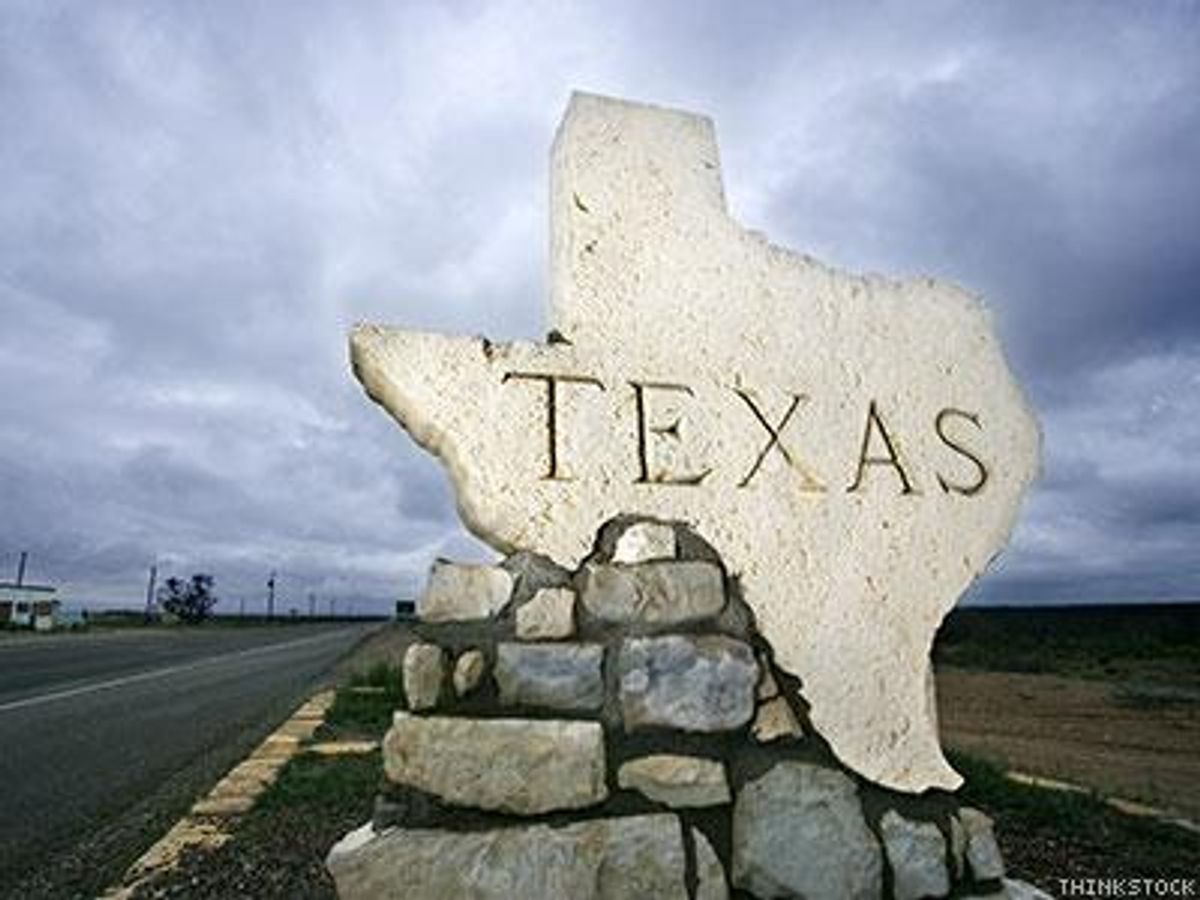Texas's ban on same-sex marriage has been ruled unconstitutional a second time, but that doesn't mean couples can start getting licenses.
A probate judge in Travis County, which includes the stat capital of Austin, ruled Tuesday that the ban written into Texas's constitution violates the U.S. Constitution, reports the Austin American-Statesman. Judge Guy Herman's ruling, which follows a federal court ruling a year ago, came after an hour-long hearing in a court case concerning the estate of Stella Powell, who died last year. Her female partner, Sonemaly Phrasavath, sought to have their relationship recognized as a common-law marriage.
They had been together for eight years when Powell died without a valid will last June. Phrasavath then became embroiled in a fight over the estate with two of Powell's siblings. Her effort to have the relationship legally recognized is one of the steps in establishing a claim to the estate.
Travis County Clerk Dana DeBeauvoir, a marriage equality supporter, praised Herman's ruling but was waiting for advice from county lawyers as to whether she could issue marriage licenses to same-sex couples. "I am scrambling, trying to find out if there is anything I can do," she told the Statesman. "Right now, I think it's no, but we are checking."
Texas Attorney General Ken Paxton is not a party to Phrasavath's case and therefore not in a position to appeal, the Statesman notes. An aide said his staff is reviewing Herman's decision.
Phrasavath told the paper her case wasn't about money, and she didn't expect it to be groundbreaking. "It was never about property rights or about property," she said. "At least for me, it was about standing up for my relationship and my marriage. If I didn't do that, I would absolutely have no voice. ... The alternative was to be silent and do nothing. I can't imagine anyone being married for six or seven years, then having to walk away after losing their spouse and feel like the marriage never happened."
In February 2014, U.S. District Judge Orlando Garcia issued the first ruling striking down Texas's marriage ban, and it is on appeal to the U.S. Court of Appeals for the Fifth Circuit. The Fifth Circuit heard arguments in January but has yet to issue a ruling.
Herman, like Garcia and many other judges before him, ruled that the ban violated the Due Process and Equal Protection clauses of the U.S. Constitution. His decision is one of more than 60 victories for marriage equality in state and federal courts since the U.S. Supreme Court's ruling striking down a key provision of the Defense of Marriage Act in June 2013, with only a handful of anti-equality rulings. The Supreme Court will hear a marriage equality case this spring, and its ruling will decide the fate of marriage rights nationwide.














































































